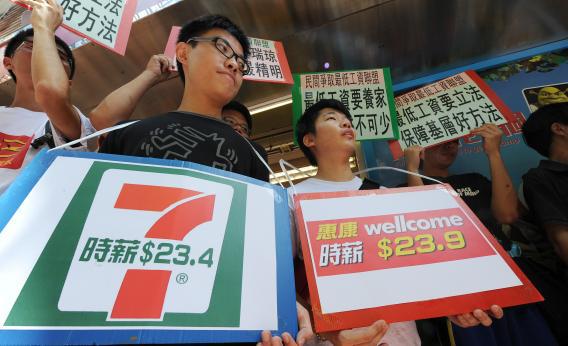Matt Miller says we should raise the minimum wage, and offers an appealing way to think about the issue:
“Part of the answer,” says Gray Davis, the former governor of California who is thoughtful on these questions, “will be convincing people to pay a little bit more for things so that Americans can have jobs that pay a decent wage.”
There are different ways to skin this cat. In my 2003 book, “The Two Percent Solution,” I argued that the minimum reward for work in America should be $10 an hour plus health coverage. That would be $12.50 today. Whether we pick $12, $15 or some other number, the question is how best to share the cost of achieving this decent minimum among employers, taxpayers (via subsidies for low-wage work) and consumers (via slightly higher prices).
The problem is that while a given company can try to convince customers to accept higher prices in exchange for higher wages, in the economy as a whole this isn’t a matter of persuading anyone to accept anything. The Federal Reserve prevents the price level from rising more than 2 percent per year. The Fed is open to the idea that price increases driven by temporary fluctuations in global commodities should be ignored, but it deems price increases driven by higher wages to be especially alarming. So higher wages have to be processed as some combination of lower profits (which is fine at a time of record profits) and reduced employment (which is not so fine at a time of high unemployment).
Now the converse of this is that expansionary monetary policy—more tolerance for inflation—under today’s circumstances would almost certainly create jobs. And more robust job creation would reduce profit margins and increase wages on average. But real wages would fall for some people (I’m probably an example of such a person), and we might worry about the impact of that, especially on the lowest-wage workers. Pairing expansionary monetary policy with a higher minimum wage could make sense.
